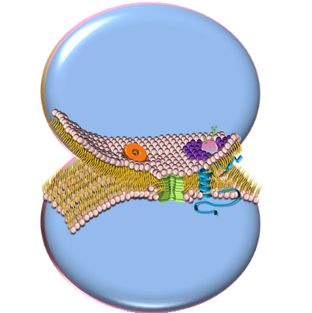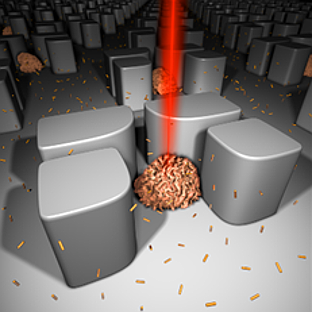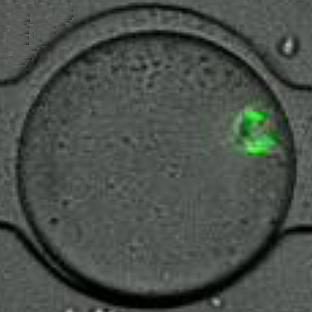
This project aims to produce and test a new microsystem technology to study human intracellular ion channels. Whilst developing this new technology in collaboration with our industrial partners, this study will investigate two proteins that are involved in cancer and neurodegeneration which currently have no known pharmacologically identified drug.
 .
.
Dr Yu Zhang
Co-Investigators:
Dr M. Zagnoni, Univ. Strathclyde
Dr C. Woolhead, Univ. Glasgow
Smartox
AstraZeneca
The aim of this project is to develop a novel system, combining microfluidics with nanomaterials and imaging tools, for screening nanoparticle-based vaccine candidates at the single cell level, creating a high-throughput technology that allows cell-nanoparticles interactions to be monitored in real-time. This technology will provide a novel platform that can be used for a variety of medical applications based on nanoparticle-drug delivery.
 .
.
Dr Carlota Cunha Matos
Co-Investigators:
Dr M. Zagnoni, Univ. Strathclyde
Dr A. Wark, Univ. Strathclyde
Dr O. Millington, Univ. Strathclyde
Improving cancer cell death using Raman spectroscopy
and microfluidic technology
The aim of this project is to combine surface enhanced Raman scattering (SERS) with microfluidic technologies to produce a device capable of analysing specific cancer cells from tissue based on their vibrational fingerprint. This approach will aid understanding of fundamental biological coping strategies to eradicate cancer cells and could be implicated in drug treatments of cancer.
 .
.
Jacob Melnyk
Co-Investigators:
Prof D. Graham, Univ. Strathclyde
Dr M. Zagnoni, Univ. Strathclyde

© Copyright 2017-2021 by Michele Zagnoni